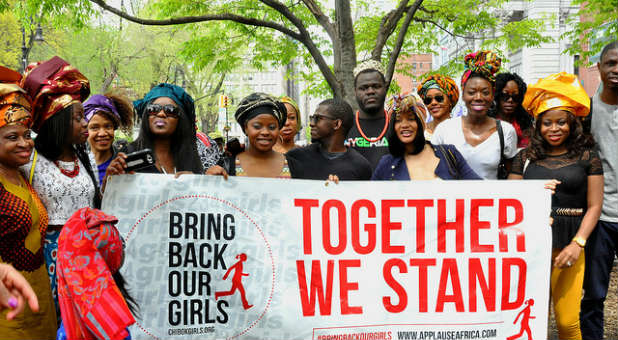Though ISIS, Boko Haram Victimize Women, This is Not the Answer
There’s something rotten in the state of Denmark.
One of the most recognized lines in all of Shakespeare’s works, spoken in the play Hamlet, was meant to express a deep distress regarding a politically and morally bankrupt society. Driven by grief to avenge the death of his father, the play takes the audience on a convoluted journey that ends in a royal blood bath. (Spoiler alert: the play ends with the death of Hamlet and his entire family.)
Indeed, there was something awry in Hamlet’s Denmark. And there is also something incredibly awful plaguing women and girls across the globe.
Vulnerable women and girls are being raped at alarming rates. According to the World Health Organization, 2014 statistics on rape indicate that 35% of women globally have been victims of intimate partner or non-partner sexual violence in their lifetime. Additionally, 30% of women report experiencing physical or sexual violence by their partner.
It gets more disturbing when we take a closer look at specific environments. In the Philippines, a woman or girl is raped every 72 minutes. In 2014, the national police recorded 7,409 reported cases of rape. One can only imagine what the true incident rates are. Sweden, which has been coined the Rape Capital of the West, reports a staggering 53.2 rapes per 100,000 residents.
In cases of displacement and conflict, violence and sexual assault rates are heightened. In Nigeria, the recent release of women and girls from terrorist group Boko Haram revealed that 214 out of the 234 abducted girls were pregnant as a result of being raped.
And in Iraq, thousands of women and girls from the Yazidis religious minority community have been tortured and raped by ISIS tyrants.
Now young girls are also pregnant as a result of their horrific ordeal. The magnitude of pain and torture these vulnerable women and girls have endured is unimaginable. The global call for justice to be served on their behalf is a right one.
This wrong needs to be made right. Yet the sudden chorus of recommending abortion for all pregnancies in these cases is, frankly, not the solution.
Pro-abortion groups and even some religious leaders have joined an erroneous “quick fix” bandwagon of advocating for abortions as a way to remedy the injustice inflicted upon these victims of rape. We have also seen the disturbing emergence of webcam abortions as a means to “fix” the issue of unintended pregnancies, particularly in cases of sexual assault.
Yet ending the life of an innocent unborn child is not the answer. In fact, it was never the issue. The real issue here is the brutal victimization of vulnerable women and girls.
So what can we—as a global community—do to minimize the risk of rape in our little corners of the world? How can we be better stewards of the least and most vulnerable among us? How can we be an effective voice to champion the needs of those without the access or ability to speak for themselves?
It starts by getting informed. In today’s high-speed social realm of information, the insight we need on this issue is at our finger tips. Knowledge is power, a phrase long attributed to Sir Francis Bacon, couldn’t be truer in this instance.
The beginning to meaningful engagement on protecting vulnerable women and girls from sexual assault starts with gaining awareness and knowledge on the scope and complexities of this issue.
We cannot act without being informed. One scripture puts it this way: “… it is not good for the soul to be without knowledge, and he who hastens with his feet sins” (Proverbs 19:2). A desire to help is always great, but without the right information, our good intentions may actually lead to more harm than good.
As members of the international community call for false solutions like abortions, they are missing tangible moments to act on behalf of the actual rape victims. For example, what about the pregnant women and girls who would like to keep their babies? Where will their support come from, after enduring this unimaginable trauma?
One of the brave survivors of Boko Haram captivity has publicly stated that she fully intends on keeping her child, much to the chagrin of her local community. Who will stand in the gap for her, as she endures being shamed and ridiculed for her decision?
This sixteen year-old teen, represents a neglected group of people in a very public debate—those who, in spite of the horrifying ordeal they faced, would not consider ending the life of their unborn child.
Innocent lives have been violated, in the most dehumanizing way. Their voices need to be heard. And their stories need to be told to an audience that isn’t just willing to hear, but are compelled to act. These vulnerable women and girls need to be restored physically, emotionally, mentally and spiritually.
Their journey to healing and wholeness needs to be a comprehensive one—where compassion, knowledge and prayer converge to provide meaningful solutions.
Marisa Lengor Kwaning is a writer, editor and health policy analyst who resides in Washington, D.C.
Reprinted with permission from Bound4LIFE International














































